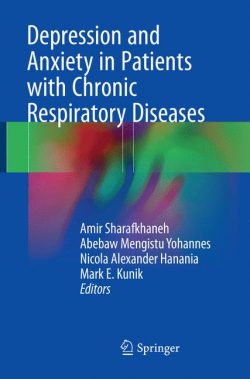This edited collection brings together the latest research on discourse and society in Latin America and Caribbean in one volume. Employing cross-cutting approaches to current political, institutional and media discourses, it bridges existing theoretical and analytical gaps between the socio-political macro issues and the micro aspects of linguistic analysis to provide fresh insights that deconstruct the complex socio-political power dynamics in Latin America and the Caribbean. Across eight chapters this volume explores the regions’ thorny relationship with their complex histories of colonialism and slavery as well as the ongoing, multifaceted constructions of hegemonic and counter-hegemonic identities at the individual, regional and national levels. In doing so, it demonstrates the unique and rich particularities of these regions and why it is that they challenge many conventional dogmas and methods across the Social Sciences. This book will be of particular interest to scholars working in Discourse Studies, Sociology, Politics, Anthropology and Latin American and Caribbean Studies.
Chapter 1. Introduction; Eleonora Esposito, Carolina Pérez-Arredondo, and José Manuel Ferreiro.- Part I Ethnic and Latin American identities construction in intercultural and multinational settings.- Chapter 2. Discursive Re-Foundation of an Intercultural Abya Yala: Morales’ Discourse in the Midst of Crisis and the Tradition of Protest; Katharina Friederike Gallant.- Chapter 3. The Discursive Construction of a Latin American Identity/ies in the UN Mission in Haiti (2004-2013); Jose Manuel Ferreiro.- Part II.- Multimodal and Corpus-Assisted approaches to Hegemonic and Resistance discourses in Latin America.- Chapter 4. The hooded student as a metaphor: Multimodal recontextualization of the Chilean student movement in a broadcast news report; Carolina Pérez-Arredondo and Camila Cárdenas-Neira.- Chapter 5. The Zapatista Linguistic Revolution: A Corpus-Assisted Analysis; Isabelle Gribomont.- Part III Discourses of Slavery Reparation and Immigrant Integration from the Caribbean and Latin America.- Chapter 6. The social media campaign for Caribbean Reparations: A critical multimodal investigation; Eleonora Esposito.- Chapter 7. Towards socio-cultural recognition and integration of Latin American immigrants in Los Angeles through the analysis of social-discursive significations; Ricardo Medina Audelo.- Part IV Integrated Approaches to Race and Gender in the Caribbean.- Chapter 8. Remaking Jamaica: tourism, labour and the Awakening Jamaica exhibition; Karen Wilkes.- Chapter 9. Being Said/Seen to Care: Masculine Silences and Emerging Visibilities of Intimate Fatherhood in Dominica, Lesser Antilles; Adom Philogene Heron.
Eleonora Esposito is Marie Skłodowska-Curie Research Fellow at the Institute for Culture and Society, University of Navarra, Spain.
Carolina Pérez-Arredondo is Associate Lecturer at Universidad Bernardo O’Higgins, Chile.
José Manuel Ferreiro is Head of Discourse Analysis at Merlin Research, Chile.
This edited collection brings together the latest research on discourse and society in Latin America and Caribbean in one volume. Employing cross-cutting approaches to current political, institutional and media discourses, it bridges existing theoretical and analytical gaps between the socio-political macro issues and the micro aspects of linguistic analysis to provide fresh insights that deconstruct the complex socio-political power dynamics in Latin America and the Caribbean. Across eight chapters this volume explores the regions’ thorny relationship with their complex histories of colonialism and slavery as well as the ongoing, multifaceted constructions of hegemonic and counter-hegemonic identities at the individual, regional and national levels. In doing so, it demonstrates the unique and rich particularities of these regions and why it is that they challenge many conventional dogmas and methods across the Social Sciences. This book will be of particular interest to scholars working in Discourse Studies, Sociology, Politics, Anthropology and Latin American and Caribbean Studies.
Applies recent methodological developments in the field of Discourse Analysis to the study of the Caribbean and Latin America
Offers a linguistic and discursive perspective on the complex identity, culture, ethnicity and power dynamics of these regions
Provides a comparative perspective that will stimulate international debate and future research
“The editors and the publisher of this timely volume should be congratulated for their initiative to introduce to the international community of discourse studies these original contributions from Latin America and the Caribbean. Latin America in particular, has been among the most active regions of discourse studies in the world, having established its first international association of discourse studies as early as 1995. The transdisciplinary studies collected here offer unique perspectives combining many types of discourse analysis, e.g., multimodal and corpus linguistic approaches, with critical social and cultural analyses, e.g. of democracy after dictatorships, slavery, poverty, (post)colonialism, national identity, (anti)racism, migration, peace processes, student movements, populism, creolization and ethnic minority resistance, among many other relevant topics. These contributions uniquely show how sophisticated analyses of text and talk offer advanced qualitative methods, still largely ignored in the social sciences, for the study of social issues.” (Teun A. van Dijk, Pompeu Fabra University and Centre of Discourse Studies, Barcelona, Spain)





